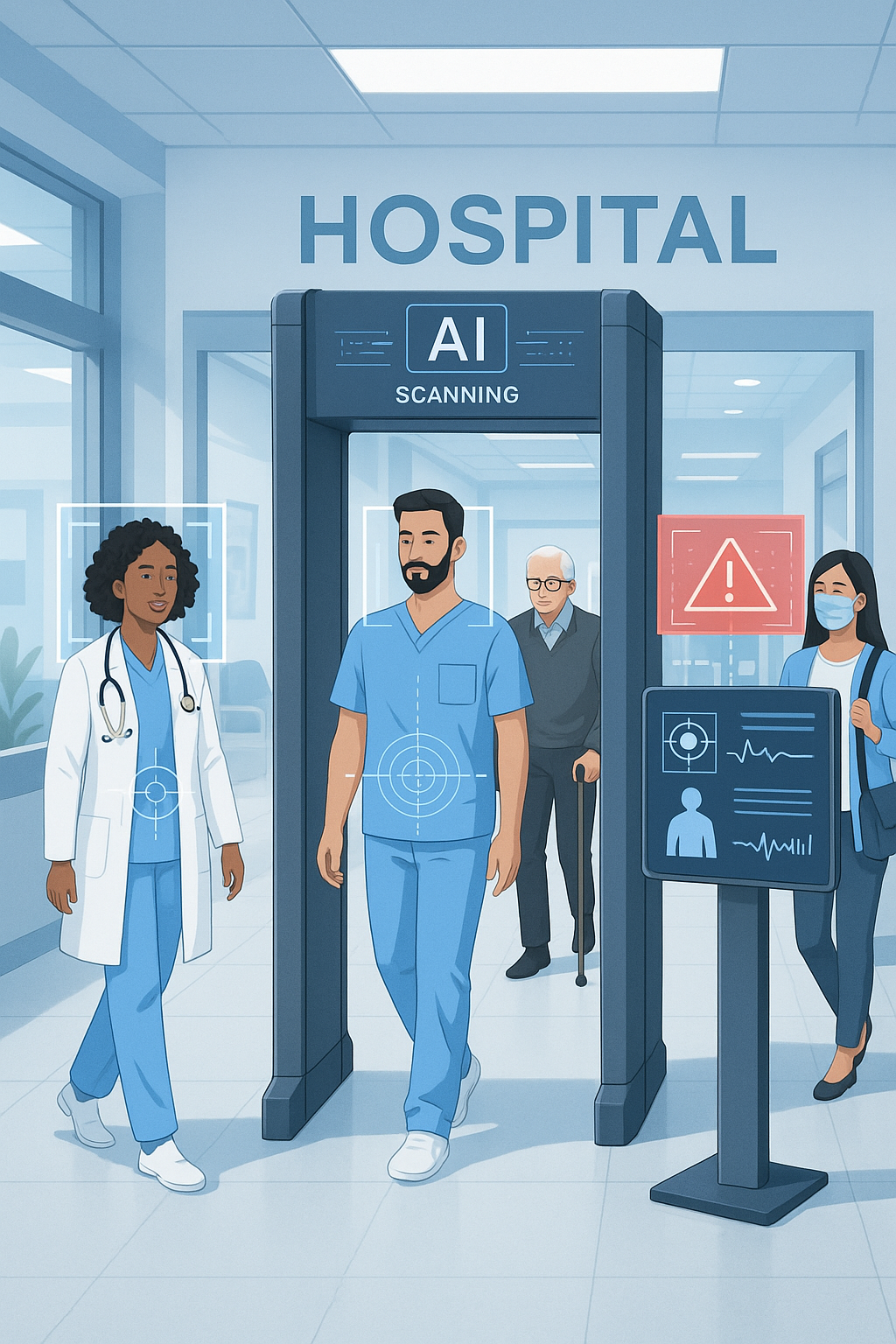The Colchester East Hants Health Centre in Truro, Nova Scotia, has become the first hospital in Atlantic Canada to implement an artificial intelligence-powered weapon detection system, marking a significant step forward in healthcare security technology. The innovative pilot project, which began operations on May 26, 2025, represents a proactive response to the alarming increase in violence against healthcare workers and patients.
The AI-powered security system, developed by Xtract One Technologies, uses advanced computer vision and machine learning algorithms to screen everyone entering the emergency department. Unlike traditional metal detectors, the system can distinguish between threatening objects and everyday items, reducing false alarms while maintaining high security standards.

“Safety is a top priority for everyone in our facilities—whether you’re receiving care, visiting a loved one, or part of our team,” said Dean Stienburg, director of security for Nova Scotia Health. “This new technology gives us another tool to help create a safer space for all. We are proud to be leading the way in healthcare security innovation.”
The system operates by analyzing the characteristics of metallic objects detected by sensors, with AI algorithms determining whether items pose potential security threats. The technology is monitored 24/7 by trained Paladin Security staff who can respond immediately to any alerts. When an item is flagged, individuals may undergo additional screening or bag searches, ensuring thorough security without significantly disrupting patient flow.
The implementation comes in response to what Nova Scotia Health describes as a “significant uptick in violence in hospitals, particularly pertaining to staff.” Healthcare workers across Canada have reported increasing incidents of verbal and physical abuse, with emergency departments being particularly vulnerable due to high-stress situations and long wait times.
Peter Evans, CEO of Xtract One Technologies, explained the system’s sophisticated capabilities: “The sensors detect the characteristics of metals and then those characteristics run through an AI sensor. This allows us to differentiate between a weapon and something like keys or medical devices, dramatically reducing false positives while maintaining security effectiveness.”
The pilot project is funded through Nova Scotia’s Safety Innovation Fund, a $7 million initiative specifically aimed at reducing violence in healthcare settings. The province has recognized that traditional security measures are insufficient to address the complex challenges facing modern healthcare facilities.
Janet Hazelton, president of the Nova Scotia Nurses’ Union, expressed strong support for the initiative. “I’m encouraged and intrigued by this plan to tackle safety concerns in hospitals where nurses are often at risk. Any technology that can help protect our healthcare workers while maintaining a welcoming environment for patients is worth exploring.”
The AI system has been designed with patient privacy and dignity in mind. Items deemed unsafe are securely stored and returned to owners when they leave the hospital, while any illegal weapons or firearms are immediately turned over to police. The non-invasive screening process aims to maintain the therapeutic environment essential to healthcare while ensuring safety.
Early results from the pilot program have been promising, with the system successfully identifying potential threats while maintaining smooth patient flow. The technology has detected several prohibited items that might have otherwise entered the facility, including knives and other potentially dangerous objects.
The success of this pilot project could have far-reaching implications for healthcare security across Canada and beyond. Other provinces are closely monitoring the results, with several hospitals already expressing interest in implementing similar systems.
Dr. Michael Thompson, Chief of Emergency Medicine at the Colchester East Hants Health Centre, noted the positive impact on staff morale: “Knowing that we have this additional layer of security allows our team to focus on what they do best—providing excellent patient care. The psychological benefit of feeling safer at work cannot be overstated.”
As healthcare violence continues to be a pressing concern worldwide, Nova Scotia’s innovative approach demonstrates how artificial intelligence can be leveraged to create safer environments for both patients and healthcare providers. The pilot project’s outcomes will likely influence future security protocols in healthcare facilities across the region and potentially serve as a model for international implementation.
